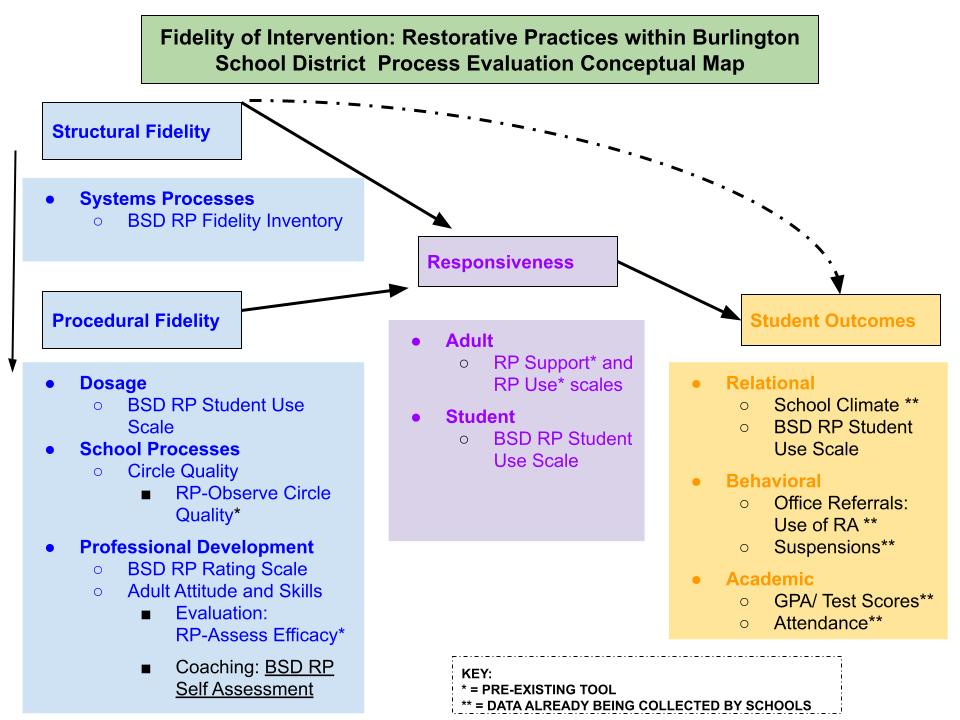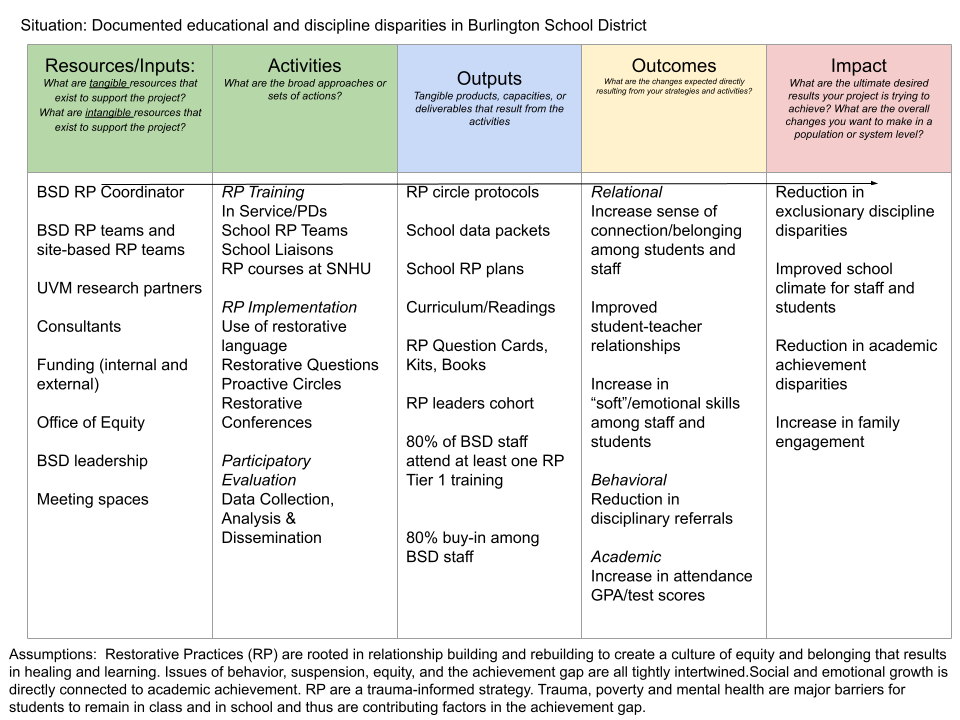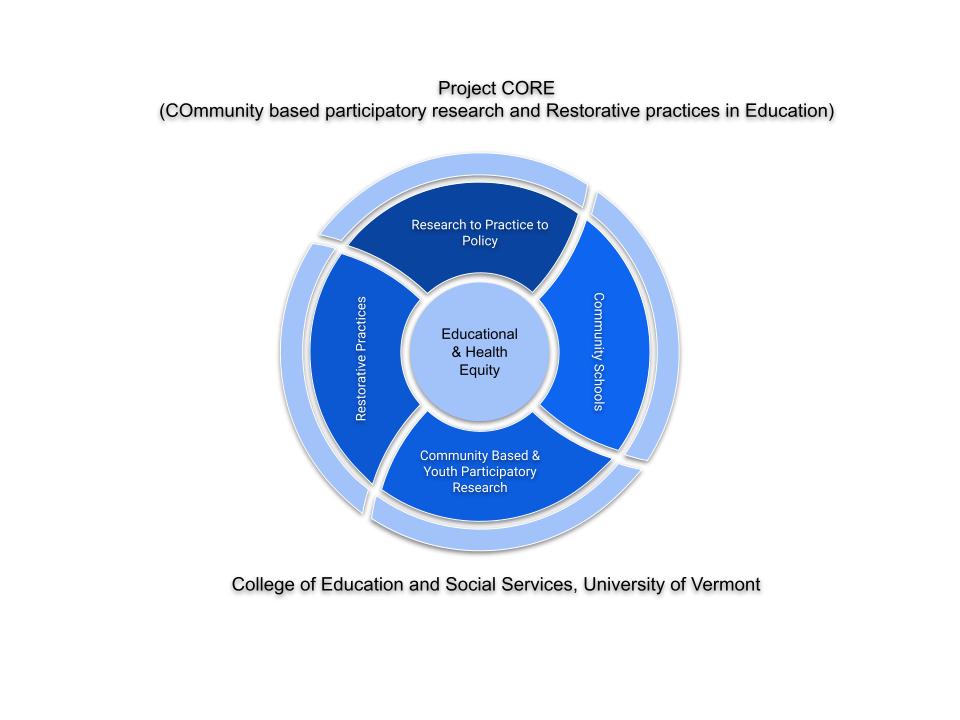School-based restorative practices (RP) strives to transform school culture and climate to promote connection and relationships among students and adults, support active accountability, elevate authentic student voice and agency, and shift the traditional punitive discipline system away from authoritarianism. Restorative Practices are rooted in building and rebuilding relationships to create a culture of equity and belonging that results in healing and learning.

We utilize transformative mixed methods and community and youth participatory action research methodologies to ensure an equitable and reciprocal process for the production and dissemination of research on the implementation and effectiveness of district wide RP to improve school climate, reduce exclusionary discipline disparities and advance educational equity. Our evaluation efforts are guided by our conceptual map that organize the data collection tools to facets of structural and procedural fidelity which influence the effectiveness of RP mediated by the perceived responsiveness of RP by students and adults.
Community Based Participatory Research Partnership with the Burlington School District to Support Restorative Practices Implementation and Evaluation
In order to address documented disparities in exclusionary discipline procedures, the Burlington School District (BSD) identified restorative practices as an evidenced based approach to reduce exclusionary discipline and improve school climate. To support this work, the BSD invited the Project CORE faculty to support the implementation and evaluation of district wide restorative practices. In the spring of 2017 BSD signed a comprehensive Memorandum of Understanding with faculty from the UVM’s College of Education and Social Services (CESS) that supports a multi-year collaborative research partnership to evaluate the efficacy of RP implementation. Statewide interest in school based RP has also been mounting evidenced by Vermont legislature signed H.95 into law in 2016, calling upon the Vermont Agency of Education (VT AOE) to explore the impact of RP on schools, and to consider pursuing research on the effectiveness of RP related to suspensions, expulsions and improved educational outcomes. Since the inception of our partnership, Project CORE faculty include an interdisciplinary team of committed applied scholars from higher education, special education, public health and school counseling and engaged graduate students alongside our BSD community partners.

Fidelity of Implementation
Project CORE and BSD partners have been committed to exploring the quality, structure and facilitators of school wide preventative restorative practice implementation centering the voices of students and staff. We have collaboratively developed a series of surveys and assessments measuring various aspects of fidelity of implementation.

Equity Centered Restorative Practices
Aligned with emerging research on RP as a tool to advance equity and reduce exclusionary discipline disparities, Project CORE faculty and BSD partners are investigating intersections among RP, SEL, anti-racist, trauma-informed and equity centered approaches. Project CORE faculty are utilizing the multi-year mixed methods data set on RP implementation to explore experiences of RP among marginalized students across the district.